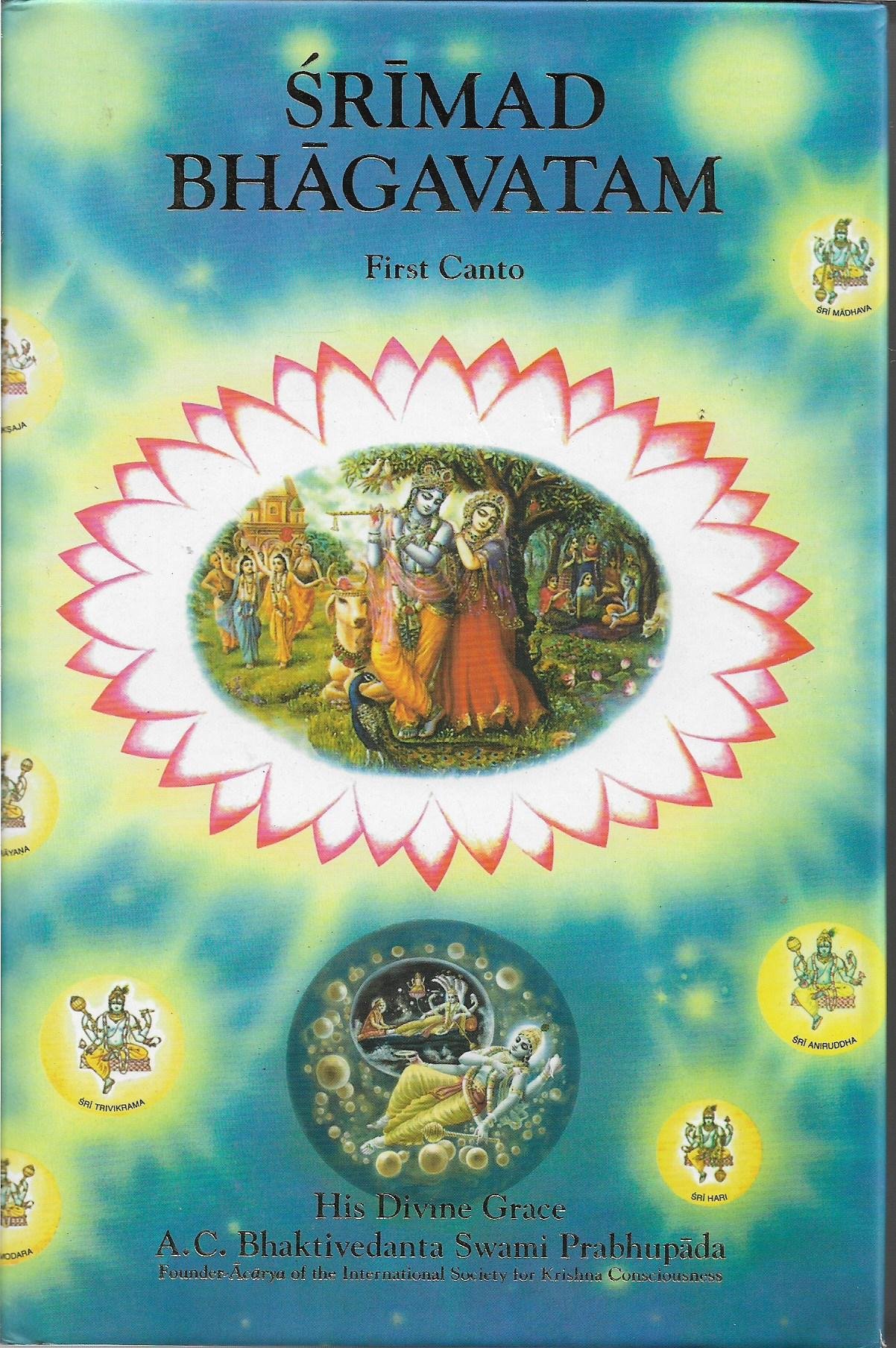 Srimad Bhagavatham
Srimad Bhagavatham
So Vyāsadeva is offering his obeisances to satyaṁ param, the Absolute Supreme Truth, not to the relative truth. Everyone has to offer obeisances to somebody. Somebody... In our practical life, at least, we have to offer obeisances to the police constable. When you go on the street, as soon as they, "Stop!" So we have to obey. So how you can avoid obeying? They are saying that "We don't believe in God. God is dead. I am God." But why you are offering obeisances even to the small constable? That means you have to offer your obeisances to somebody. That is your position. But we are offering obeisances to the relative truth. Relative truth means... That has been explained here that tejo-vāri-mṛdāṁ yathā vinimayo yatra tri-sargo 'mṛṣā. We are offering obeisances to a temporary manifestation of tejo-vāri-mṛdāṁ vinimayaḥ. Tejaḥ means fire, vāri means water, and mṛt means earth. So you take earth, mix with water, and put it into fire. Then grind it, so it becomes mortar and the brick, and you prepare a very big skyscraper and offer obeisances there. Yes. "Oh, such a big house, mine." Tri-sargo 'mṛṣā. But there is another place: dhāmnā svena nirasta-kuhakam. We are offering here obeisances to the bricks, stone, iron. Just like in your country especially—in all Western countries—there are so many statues. The same thing, tejo-vāri-mṛdāṁ vinimayaḥ. But when we install Deity, actually the form, eternal form of Kṛṣṇa, nobody offers obeisances.
Srimad Bhagavatham
